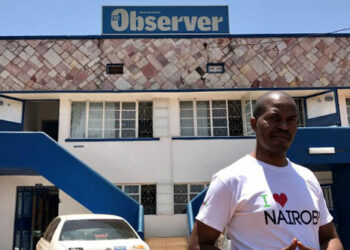By Denis Jjuuko
Once in a while, you will receive a call or message from somebody who needs the services of a doctor or lawyer. Their issue might not be alarming. A first time mother who needs an obstetrician or pediatrician they can trust. Somebody may be in search of a lawyer who isn’t fake or a conman. Sometimes, you may also not know. For example, do you know the best divorce or intellectual property lawyer in town? What about the best immunologist? And in most cases, by the time people make calls, they have tried many places and got nothing.
For serious medical conditions, you can move from one so-called senior consultant to another searching for somebody who can be able to diagnose your condition or treat you. Sometimes you need a gynecologist but somebody recommends a pathologist. It is crazy to identifying good doctors and lawyers. And you will hardly find a doctor or lawyer who doesn’t say they can’t handle your problem. Doctors have actually been accused of failing to recommend patients to others until it is too late for somebody to survive. These days, every problem is a bacteria infection!
Some volunteer village health teams (VHTs) and health promoters go around calling themselves doctors especially in rural Uganda prescribing drugs and administering them. If you want a nurse to look after you properly, you simply call them a doctor. It massages their egos.
Because health in Uganda has become so lucrative, there is a clinic or pharmacy every few metres in Kampala. I am not sure of the numbers but probably Uganda has the highest number of pharmacies, drug shops and clinics per a capita in the whole world. And at every turn, there is some law firm doing all sorts of stuff whose employees including clerks and messengers go around calling themselves counsel, esquire, advocate, learned friend, LLB, and the like.
One of the reasons for the proliferation of these law and medical firms is because there is some archaic law that forbids them from advertising. A good doctor and lawyer aren’t allowed to place adverts explaining to the public how good they are. So that creates less competition. Open a shop and patients will show up. Open a law firm in some market, and people will be there. If they are allowed to advertise, some fake ones will close. People will have a choice of where to go without trying first, get a bad service and then go away.
Those who want to seriously invest in healthcare would do so because advertising would enable them get more clients and cut the costs one needs to pay for some of these specialized treatments and diagnosis. Reliance only on word of mouth is good and can be effective but only for the established facilities. Advertising enables new entrants to compete with others and bring the cost of doing business down.
Imagine if the telecoms didn’t advertise. The cost of their services would remain high as they were in the 1990s. They wouldn’t even bother to improve their offerings because competition would be limited. That is why a lot of senior doctors today still operate the way they used to do 20 years ago with very limited uptake of technology. They also know that you wouldn’t easily identify another good doctor. Younger doctors struggle to establish themselves because they have limited ways of reaching their customers. Lawyers face similar challenges.
Ironically, witchdoctors and fake prophets who promise miraculous healings are free to buy as much media airtime and space as they wish. There are many radio stations today that survive on advertising from people who promise all sorts of things including catching thieves, getting one a visa to America and or a lover of their dreams. Guys who sells drugs that enhance a woman’s bottom are freely advertised. Fake pastors and witches are very competitive today because they have been allowed to advertise. Those who fall short in their schemes lose their market share to the next guy.
The same model could help make the health and law markets competitive. And unlike with fake prophets/pastors and witches, the professional doctors and lawyers would be good for the public. The cost of their services will come down and they will improve their trade knowing that the public has alternatives.
The author is a media consultant and businessman. djjuuko@gmail.com
*Internet photo of a hospital
Do you have a story in your community or an opinion to share with us: Email us at editorial@watchdoguganda.com










